By Diane Burroughs
Revised 7/28/2022
Table of Contents
It’s the start of summer, and it’s starting to get hot! In fact, it seems to be getting hotter every year! Make sure you don’t let your bird suffer from a bird heat stroke by reading our guide on parrot care in summer tips. We cover topics such as how to know if your bird has a heatstroke, ways to keep the temperature down, how to make sure you provide enough water, what the humidity should be, and more! Plus we answer some questions our readers have asked us!n how to keep your parrot cool during the hot summer months.
Do birds feel hot in the summer?
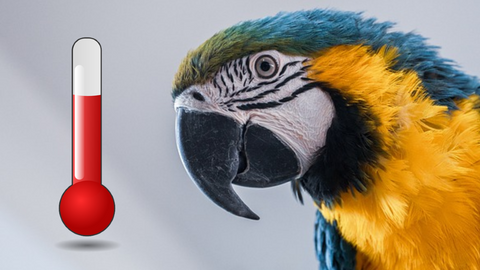
Believe it or not, pet birds can get overheated. Compare your own heat tolerance to that of your parrots. If the temperature is too high for you, it is also likely to be too hot for your bird. While parrots can tolerate moderate heat, sudden temperature changes can cause bird heat stroke. If your parrot is used to air conditioning and you let him out on a hot day, he may get ill or suffer heat stroke.
Think about where our tropical birds come from. They've evolved in forests and jungles where temperatures range from 81 °F to 86 °F with high levels of moisture. This is the temperature that is most similar to your bird's natural habitat.
During summer heatwaves, the environment changes greatly from your birds' natural habitat. That's why it is important to learn parrot care in summer strategies.
How do I keep my bird cool in the summer?
Nobody wants an overheated bird in the sizzling hot temperatures that we've been experiencing lately. When the heat is too high in an outside aviary, water misters can be installed. The cooling evaporation will bring your bird some comfort.
When a bird gets too hot, he will pant like a dog, sit low on his perch, and keep his wings away from his body to stay cool.
When your animal is indoors during exceptionally hot days, be sure to give him or her a light spritz of water and make sure they are not in an enclosed area. Another option is to put a large dish of water in their habitat. Additionally, close the curtains to prevent sunlight from streaming in and caulk the holes where cool air can escape.
A ceiling fan or oscillating fan will produce a small breeze that improves cooling evaporation, but your bird must not be exposed to drafts.
Here is a list of some natural ways that birds can cool themselves down in extreme heat:
- Through a rapid respiration rate that looks like panting
- By perching in the shade - wild birds can fly and soar at higher altitudes
- By bathing
- by spreading their feathers in a fluffed-up fashion
- Perching high in a tree where there is gentle air movement (Never expose your bird to a draft)
- Slightly opening up their wings
What temperature is too hot for birds?
Birds have a higher body temperature than we do, but that does not mean that their bodies have been adapted to extreme heat. In reality, their body temperature is around 105° F. It also doesn't mean that they sweat to cool themselves off. Unlike other animals that spend a lot of time in the sun, birds use their feathers to prevent bird heat stroke.
Birds can handle a wider range of temperatures than most people know. A healthy bird can withstand temperatures from 40-90 degrees Fahrenheit without risking overheating. Of course, you wouldn't want to take a bird from an air conditioned house into the 90° sunshine. Their body temperature needs to change slowly.
What temperature is too hot for birds?
Birds have a higher body temperature than we do, but that does not mean that their bodies have been adapted to extreme heat. In reality, their body temperature is around 105° F. It also doesn't mean that they sweat to cool themselves off. Unlike other animals that spend a lot of time in the sun, birds use their feathers to prevent bird heat stroke.
Birds can handle a wider range of temperatures than most people know. A healthy bird can withstand temperatures from 45 - 85 degrees Fahrenheit without risking overheating. Make the adjustment slowly; do not just jump into colder or warmer water.
Can heat kill birds?
Heat can kill birds, just like it can kill people and other animals. If left in the heat for too long, your bird may suffer from dehydration and show neurological symptoms due to bird heat stroke. They may even lose the ability to fly or perch.
Animal rescue centers received many calls in 2022 during the UK's dreadful heatwave when birds literally fell from the sky. Shade and water were the only relief for many birds. Don't let heat kill your feathered friend.
How do I know if my parrot is hot?
While most of us worry about our birds getting chilled in the winter, it's also important to know that birds can get overheated, especially if it happens fast, like when leaving them for a long time in a vehicle that's exposed to the sun or leaving them for a long time in a home that's air-conditioned and then taking them to a hot place.
Whenever your bird is exposed to a temperature or condition that might make you uncomfortable, make sure to closely supervise it for signs of heat exhaustion, such as
- breathing heavily with an open mouth like a dog panting - perched low with wings outstretched from the body - looking distressed rather than engaging with their environment or enjoying the enrichment of the activity that you're doing
How do I help an overheated bird?
Be on high alert if you notice that your bird is over-heated, as they can develop a heatstroke quite quickly. For right now, try to stabilize your bird with these methods
Spray the feathers with cool water until the bird is soaked to the skin. Put the birds feet and legs in a bowl of cool water. Quickly move to a quiet, cool area and monitor closely Wrap it loosely in a moist towel to reduce body temperature Watch bird for fluffed up feathers, unresponsive, slow breathing, and weakness For further treatment recommendations, immediately contact your avian veterinarian or a emergency clinic.
5 Tips To Help Prevent Bird Dehydration
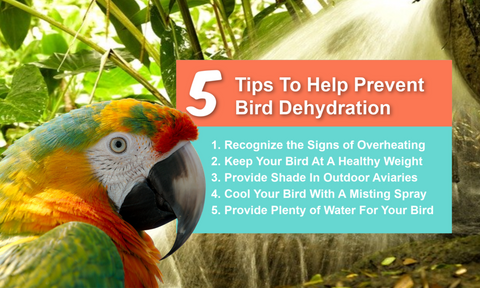
1. Recognize the Signs of Overheating
If your bird is breathing through his mouth or panting, holding his wings away from his body, or is on the floor of the cage behaving in a lethargic or stressed manner, these could be a sign that he is sick or overheated and needs immediate veterinary support. Call your vet now.
2. Keep Your Bird At A Healthy Weight
A poor diet can make your bird overweight, making him or her susceptible to bird heat stroke. The same complications that overweight humans face can also occur in birds.
Hence, ensure that your bird's diet contains a wide variety of "live raw plant-based foods" for optimum weight and health. A healthy, fit bird is less likely to suffer from bird heat stroke. Learn more about my bird diet recommendations here.
3. Make Sure That Your Bird Has Access To Shade
Even though it's healthy for a bird to get some fresh air outside and enjoy the sun, if he or she stays in the sun for too long you could end up with an overheated bird.
You can help prevent this from happening by following these parrot care in summer tips
- Take your bird out earlier in the day before the heat gets to hot. The best temperatures for avian sunbathing are between 50 - 80° F. Always supervise your bird when it is outside.
- Always make sure that your bird has access to a shaded area. Purchase a shade cloth and attach it to the aviary on the East / West sides. Make sure to place some comfortable perches in the shaded area plus food and water dishes.
- Get some large bird-safe shading plants that you can place inside of the aviary. Plants store a lot of water and if the plant has "perching" surfaces, all the better. By making sure that the plants have access to sunlight for a portion of the day, the soil and plant will receive the disinfecting benefits of natural sunlight.
4. Use Pet Camera's to Monitor Your Pet That Syncs To Your Phone.
Keep an eye on your bird with a pet camera. If you see signs of an overheated bird it's important to have a misting bottle filled with fresh water handy for a quick cool down. Better yet, take your bird inside to a cooler location and get it out of the heat.
5. Use an Echo To Remind You To Check Your Bird Every 5 Minutes
The workaholic that I am, I could write blogs for you guys all day long. But, when my Echo device notifies me to check on my parrots or let the dogs out, it is really helpful. My outdoor aviary is right near a window, so I can easily check on my birds.
Another feature that I love with my Echo is that I can look at the outside temperature. If I follow the projected hourly weather and clouds on my phone app, I can be sure to bring the birds inside when it gets above 85° F to avoid bird heat stroke.
Even though I can see my birds from a window, I like to walk outside and even touch the aviary to see if the metal is getting too hot. I don't want my birds burning their foot pads if they climb up the hot metal cage.
So, there you have it!
If you follow these tips you should be able to keep your bird safe, healthy, and happy through the summer!
6. Bonus Tip: Water and Ice!
Make sure that you always have a bathing dish full of fresh, clean water at the bottom of the cage and that it is replaced every time you take your bird outside. Keep it there anytime the bird is exposed to temperatures above 80° F
Also, it's important to make sure that your bird has plenty of freshwater to drink, and this should be replaced daily too. You can even put ice cubes in the water.
Attach an Orbit Flex Cobra Mist Stand to your garden hose and let your bird get a gentle mist on hot days.Related Posts:
Feeding your parrot a well-balanced diet
3 homemade treats your parrot will love this summer
References:
https://lafeber.com/pet-birds/questions/how-hot-can-the-bird-take-what-temperature/ https://www.fws.gov/story/how-do-birds-keep-cool-summer https://www.audubon.org/news/how-birds-keep-their-cool#:~:text=Several%20populations%20of%20birds%2C%20most,summers%20that%20feel%20like%20scorchers.
https://www.parrots.org/pdfs/our_publications/reports/2021WPTImpactReport.pdf
Diane Burroughs, LCSW is a licensed psychotherapist trained in ABA therapy techniques. She specializes in avian anxiety disorders and is certified in Nutrition For Mental Health. Diane has written a number of bird behavior books and she offers behavior consultations. She's developed a range of UnRuffledRx Science-backed Parrot Wellness Supplies.
Diane's products have been featured in the Journal of Avian Medicine and Surgery and at Exoticscon, a conference for exotic pet veterinarians. Her bird collars & supplements are stocked in avian vet clinics and bird stores throughout the US. With over 30 years in the field of behavior, Diane has created thousands of successful individualized behavior plans that help pets thrive.
TAGS: #BirdSummerCare #HowToKeepYourBirdCool
SHARING IS CARING! PLEASE SHARE ON YOUR FAVORITE SOCIAL MEDIA NOW!

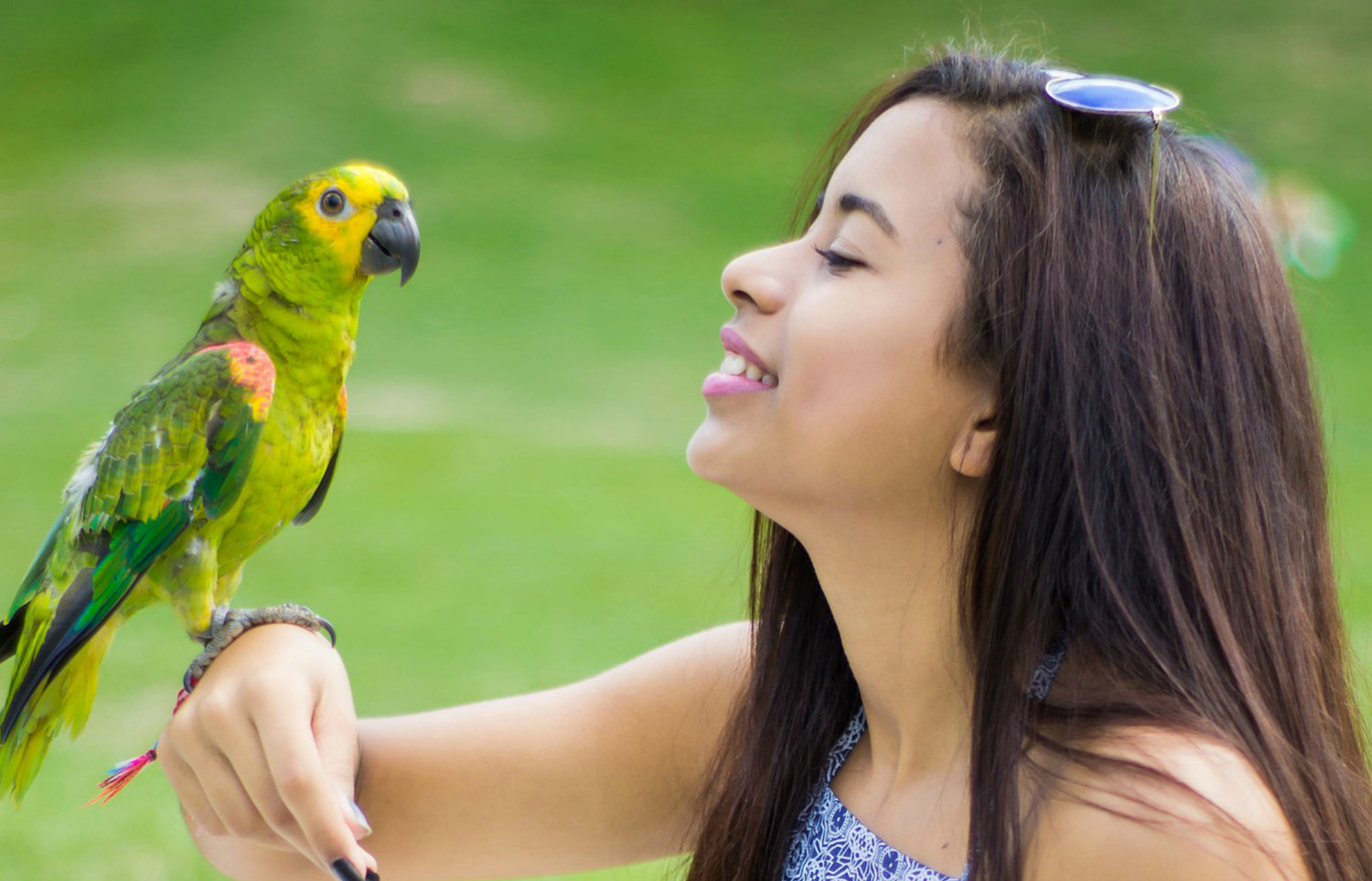

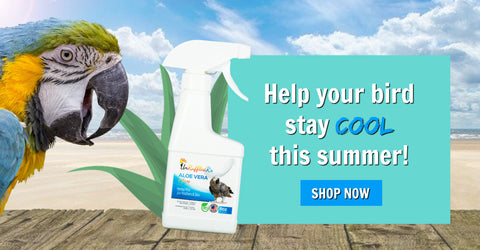
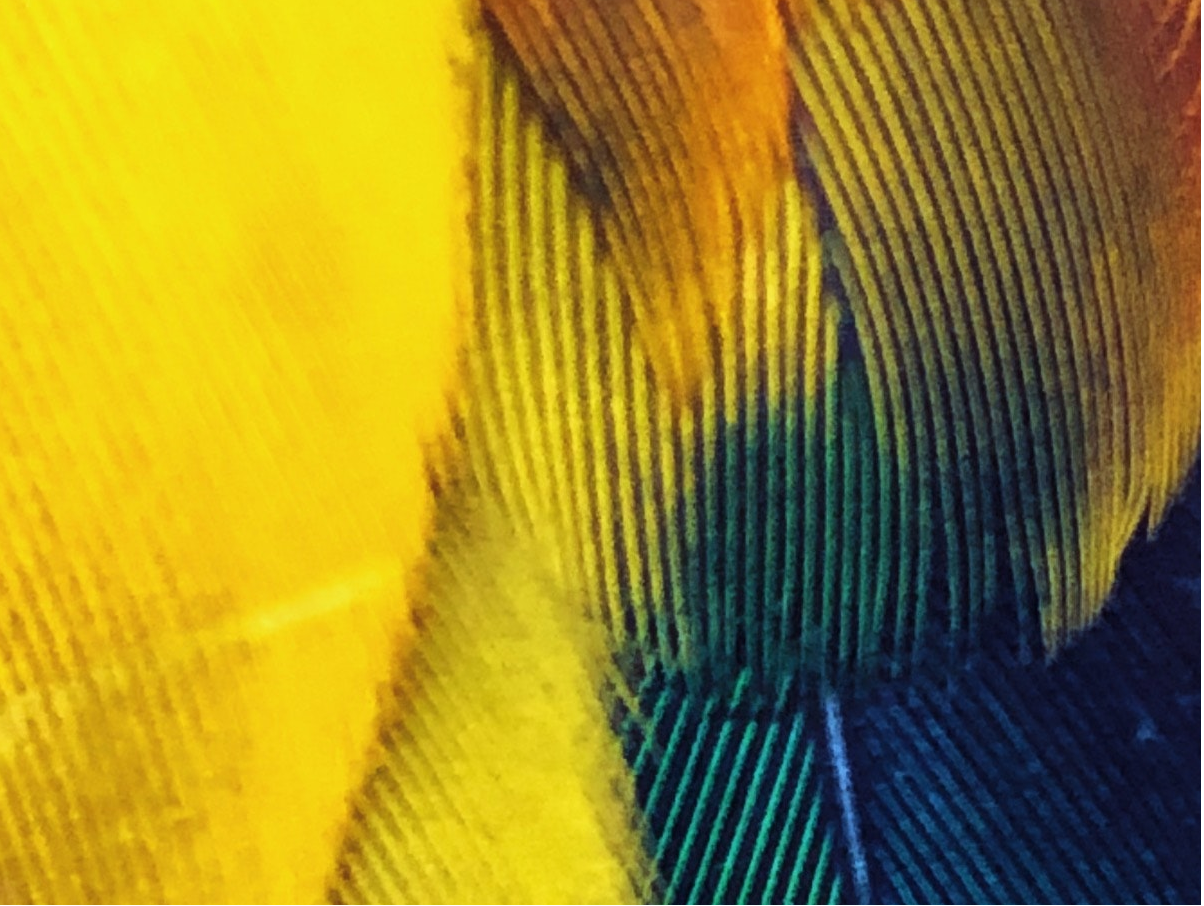
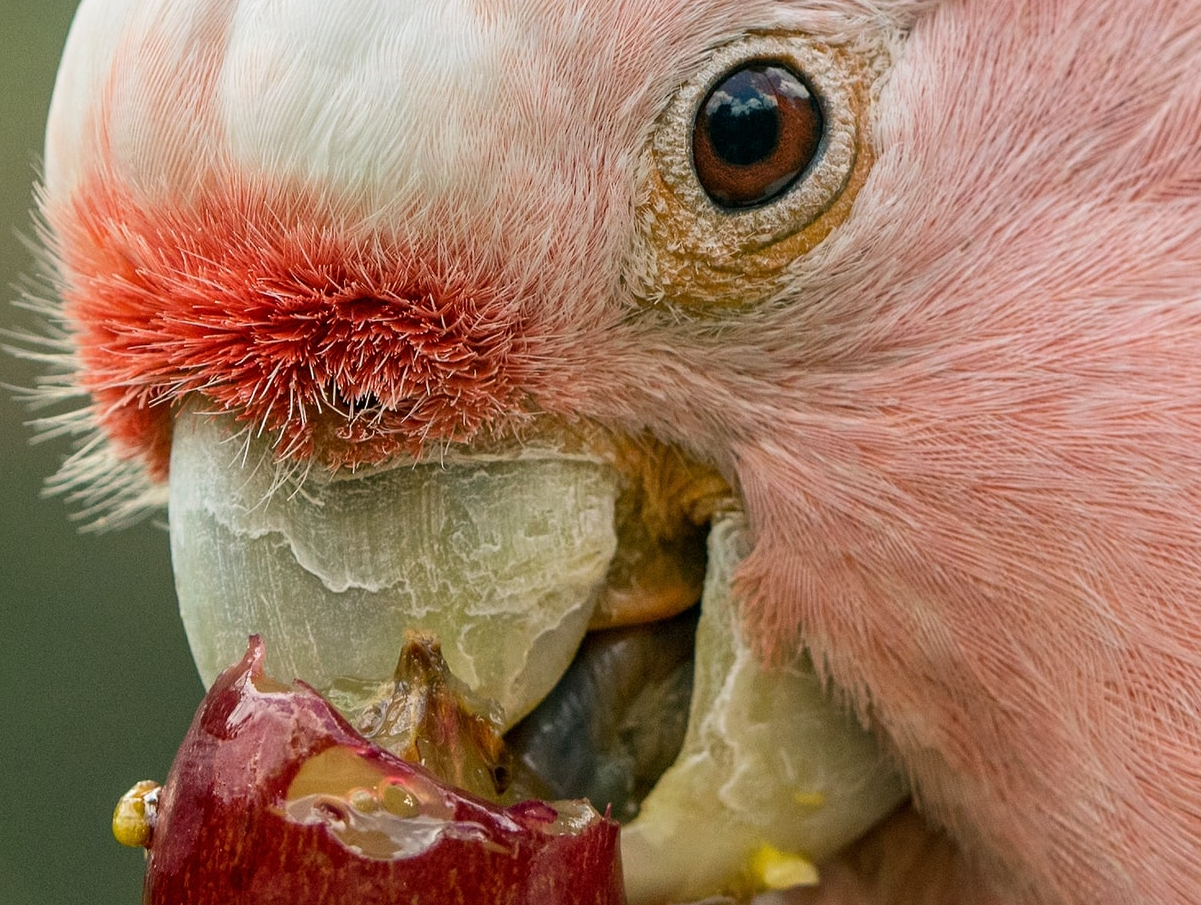

3 comments
j
please kill yourself for writing such an awful post with so many mistakes
please kill yourself for writing such an awful post with so many mistakes
Lindsey
Thanks for this post! Tomorrow it’s going to be 94 degrees and all the AC units broke… going to be using this advice!
Thanks for this post! Tomorrow it’s going to be 94 degrees and all the AC units broke… going to be using this advice!
Pet Sky
Thanks for sharing the informative blog. It is really helpful for the bird’s owners. We do not understand their language but we can show them care by following your tips. Keep posting helpful information ..
Thanks for sharing the informative blog. It is really helpful for the bird’s owners. We do not understand their language but we can show them care by following your tips. Keep posting helpful information ..